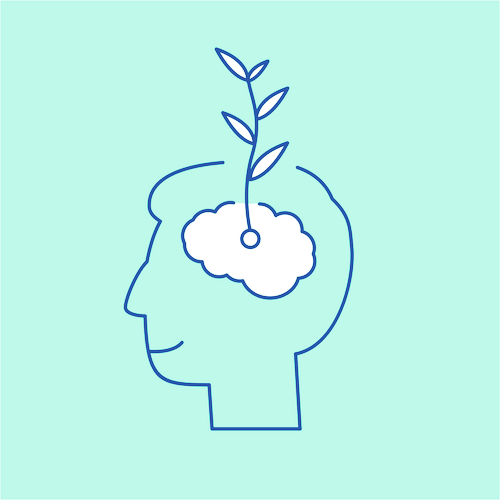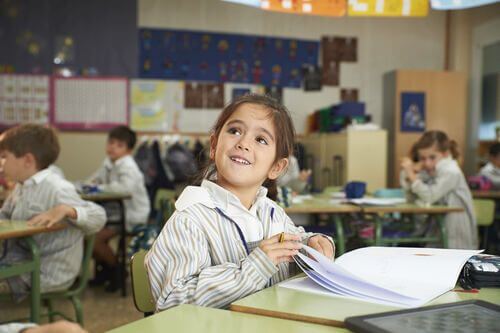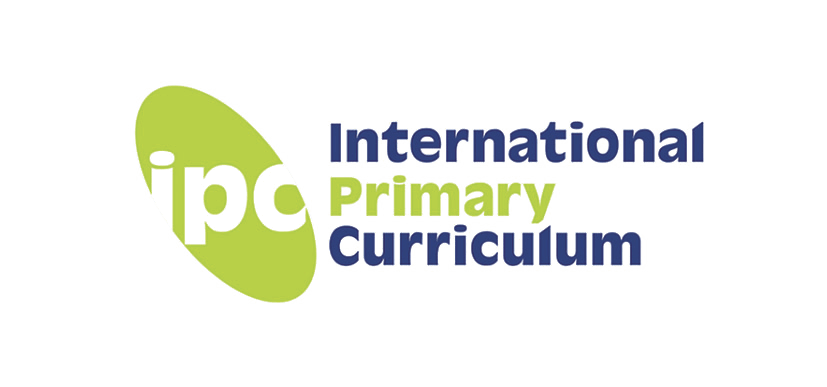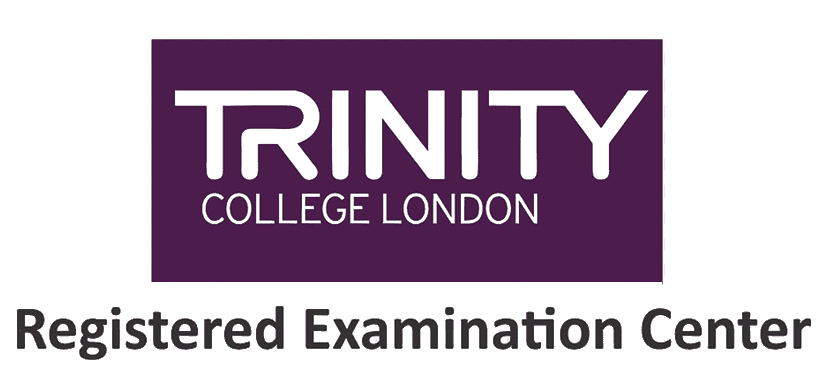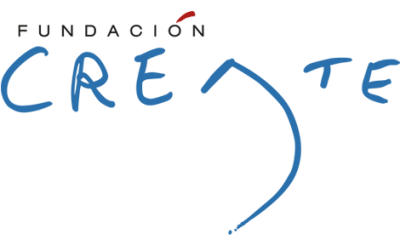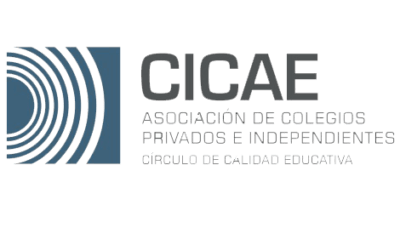Fixed mindset vs. Growth mindset
How do you know if your children are really making progress every day? In this post, we will outline some of the key questions you can ask your children and the answers you can expect. We will also look at some of this scientific research on learning, differentiating between fixed mindset and growth mindset and give you some ideas on how to support your child in their learning, but first of all, I will introduce the team for this presentation.
How do we define learning?
At ISP, students and learning come first. Because learning is the only versatile, future-oriented skill there is, and it is something we can all get better at.
But what exactly is learning? First of all, it is a process. We often talk about learning as a single event or moment – I ask my daughters: what did you learn at school today, or a friend: what did you learn in class or at work – but in reality, learning is a continuous process that evolves over time, taking us from simple, superficial knowledge and skills to complex, deep understanding.
So if learning is a process, what process is it exactly?
At ISP we believe that learning is the process of improving our knowledge, skills and understanding through deliberate and repeated experiences. In this way, the learning process is our growth process and bridges the gap between where we are now and where we hope to be in the future.
Imagine you want to swim, but you don’t know how, the learning gap between where you are now (someone who can’t swim yet), and where you want to be (someone who can swim), is not bridged in a single lesson, to overcome this gap you must repeat the experiences that will lead you to the final goal.
“First, you must learn to feel safe in the water, then to float, to swing your legs with support, to co-ordinate your arm movements, to breathe, and so on. Gradually, through repeated experiences, you will acquire knowledge and improve your skills, you will leave behind the supports and swim unaided”.
But it is not only the repetition of experiences that is important, the types of experiences we have that determine whether the learning effort is positive or negative. Imagine learning to swim with an experienced, supportive and learning-focused coach. This kind of repeated experience, even if it sometimes seems difficult and demanding, is likely to be positive and enriching. When we experience learning in this way, we have a positive sense of success and of moving towards the goals and outcomes we expect. We want to learn! This is what we call positive effort, and it is a feeling we may end up liking.
How can you tell when a younger pupil is feeling this positive effort, and how they feel about learning?
We in the school are trying to change this learning culture, and trying to make our children more and more aware of the process, as we talked about at the beginning, and not only of the result. In primary school, our students are very used to doing different thinking routines, both before, during and after the activities, and these help them a lot to focus on their learning and to know where they are in the learning process. At the end of each session, we also try to ask them learning questions, such as: what do you know now that you didn’t know before, or what do you know today that you didn’t know yesterday, what did you find difficult in today’s session, and these kinds of questions that they write down in their reflection diaries, also help them to reflect, as I say, and help them to understand their process better.
On the other hand, when they apply their communication skills, their social skills of self-management, which we work on from the very youngest, from first grade, they also see how they are evolving and improving in the acquisition of skills, and this helps them to have positive reinforcement on the one hand, and a positive effort on the other, when they see that they have achieved it, to feel successful and motivated in the process, which is fundamental for there to be a positive effort. And when we also talk a little about the youngest children, from the infant stage, it might seem a little more difficult to detect this learning, but in the end it is just a matter of observing them during their symbolic play time, their playground time, their time playing with their classmates, drawing, and it is immediately detected, in a very simple and very clear way, whether they are learning or not.
Growth Mindset and Fixed Mindset: differences
Two students who have, supposedly, the same level, the same ability depending on their attitude, could get very different grades, because of how they saw the effort, how they saw the intelligence itself. He defined these two processes as Fixed Mindset, fixed mindset, and Broad Mindset, growth mindset, so you don’t have to focus on the result, ok, I know if you focus on the result, you have a fixed mindset, and that means that a person who has a fixed mindset, thinks that intelligence is something innate, that you can’t change it, that a person is either intelligent or they are not, and if I fail the first time, I’m always going to fail. Students with a fixed mindset say things like, I got a good mark in the exam because I am intelligent, this idea of intelligence is something I have had since I was born, or I am bad at maths and that’s why I got all the fraction questions wrong.
The idea that I am bad is something forever, that is in the fixed mindset, that focuses on the result, but what we want is for students, and us as adults too, is for us to have this growth mindset and to focus on the process, to think that we can improve our skills with practices that, through effort and determination, we can achieve what we want to achieve.
People with a growth mindset say things like: I got a good grade on the test because I worked hard, they focus on the fact that they deserve the good grade because they have made an effort, they have experienced this positive effort, they have made a positive effort, they have made a positive effort, they have made a positive effort, they have made a positive effort, they have made a positive effort, they have made a positive effort.
How can you identify a child who has a fixed mindset?
Well, for us I think it’s also more or less easy to identify them, just like in secondary school we are very used to hearing comments like: this is too difficult, I can’t do it, or why do I have to do this better if it’s already good, why do I have to improve it, or I’m not good at this part of writing, I’ll never improve, a little bit frustrated.
And this type of behavior, the truth is that it appears on a very regular basis, I suppose that secondary behavior will also occur with some students, and our objective as teachers is simply to recognise it, detect it as immediately as possible and try to bring them back to a more favorable position for them, a position that helps them to understand that learning will always be possible for all of them, and that effort, and finding things difficult, will help them in this process, will help them to improve, and will help them to learn.
What strategies are used to change this mentality and to help the child develop a growth mindset?
Well, one technique that works quite well for us is, first of all, to dedicate time, quality time for these students. To be individually with that student and to go over some other work, some other task or activity that they have done before, where they showed that they could do it, that they did have that ability, that they did have that knowledge and we try to explain to them that we have seen them do this before, and of course, our main strategy when they say: I can’t, I can’t do this, is to explain to them that maybe they can’t do it yet, and the word yet I think it has to have an impact on them, and they have to understand it very well.
We as adults, we can change the minds of students and children simply by using this word, because people with a fixed mindset might say: I can’t do this, I hear this a lot in my high school class, I can’t do it, it doesn’t work, it doesn’t make sense, I’m not good at maths, I don’t understand it, however, if we add the word still to these sentences you can see how it changes, these seven letters completely change the sentence: it doesn’t work yet, with effort it will work, it doesn’t make sense yet, if I review maybe I understand, I’m not good at maths yet, if I practice, if I ask the teacher, if I do homework with my friends, maybe I can, can’t do this yet, I don’t understand yet, it’s the idea that yes I can achieve this success, yes I can do what I want with this effort, and with a positive mindset, a mindset that focuses on the process.
How to apply these strategies in a school?
In the report card, apart from grading a subject from 1 to 10, using the comments part of the report card is an improvement where you can reflect the level of progress, and also add something fundamental, an area of improvement to focus on for the next task, the next unit, or the next topic.
Something fundamental, is that when your children want to help you at home, which they will, and it is normal for them to do so, please do not do the work for them, this is fundamental.
The best teachers tell students where to look, but not what to look at, I think it’s all of this, as adults, we have to keep this in mind when we interact with students in what is homework or learning in the classroom. So if we focus a little bit more on the language we use with students, a lot of times they say things like: it’s too hard, I’ve heard this several times, I guess in primary school too, this is too hard and the temptation especially at home is to say okay, I know this is hard, do something else, don’t put pressure on yourself, don’t stress, but this reinforces the idea that something might be too hard and that with a lot of effort you can’t achieve it, so, changing a little bit what we say to: you can learn what you want, give yourself time, you can learn what you want, give yourself time, you can learn what you want: you can learn whatever you want, give yourself time and be patient, meaning that yes, it is difficult, but this is not a bad thing, you just have to make an effort.
Which phrases are typical of a fixed mindset?
- Why try if I’m going to fail? This idea that failure is always bad, that you always have to pass and get things right to succeed, and it’s natural as a parent to want to take the pressure off a child, this is normal, don’t put too much pressure on yourself because we want them to be happy, and yet if we change what we say a bit, to try to see failures as opportunities to learn and improve, then they won’t see failure as something disastrous and that also takes the pressure off them.
- What did you get out of it, what did you get out of it, comparing yourself to others, I hear this all the time, I don’t like to give exams back to my students, because no matter how much I say it, they can’t do it, and so they see their successes, how in comparison to others she is smart, and consequently the other one will never be smart. What we want is for students to see the successes of others as a challenge, as something they can achieve themselves if they make this effort, if they maybe sit next to that bright girl, see what they can learn from her, and that celebrating the success of others, not fearing it, I think is the key here.
How do I ask my children questions about the process and not the outcome of the learning they’ve had at school?
The natural question is: what did you do at school? or what did you learn at school? and sometimes they get especially from teenagers either a one word answer, or information about the toys they’ve used, or what they’ve eaten in the canteen, and it’s not the information we really want and need, so the first question we recommend is this: what do you know today that you didn’t know yesterday? and this is a useful question, because it focuses on the acquisition of knowledge, and it also lets you know which of all the information your child has received during the day has stayed in the brain, which has passed from short-term memory, and it also gives you an idea of what your child is interested in, because they will always say first the things that they feel they are most interested in.
Then, is there anything that was difficult for you today, this focuses on positive effort, this is also a question that we like, because it communicates the idea that difficulty is something positive to the child, and the idea that it is good to encounter difficult things, because that is how we learn, that is how it stays in the brain and also, it gives you an idea of how the difficulty is dealt with, how your child handles the difficulty, what does he do, does he give up, which is possible if he has a fixed mindset, or does he look for tools, strategies to overcome this difficulty.
What can you do as a parent to find out if your child is learning at school?
- In most schools, the contents of the subjects are published on the school’s platforms, so that you can keep up to date with what your children are learning. In others, in addition, specific communications are sent about the new unit or the new subject to start working on, and in this way we avoid the questions of what have you learned at school, and children tend to answer what they liked the most, what they played in the playground, what they ate… There are worse answers, which are, nothing, what have you learned today at school, they answer, nothing and it is not really that they have not learned anything, but that the question is not well focused.
- Asking better questions. “Did you ask a good question today?” This question for your children , it lets you know if your child has been engaged in learning, because if they’re not engaged, they’re not asking questions and also, it lets you know if your child is making these connections between the information in their brain, which is the basis of intelligence. And I would also add, Natasha, that I think that in most PSI schools we work a lot on public speaking, on public speaking, so that children are overcoming more and more of that embarrassment. It’s true that in secondary school, I’m not so good at it, but there is a part of adolescence, of age, of other types of factors, but I think that also, the fact that we are working a lot on public speaking from a very young age, that from a very young age they make presentations in front of their classmates, they do many activities related to this, I think that in the long run.

